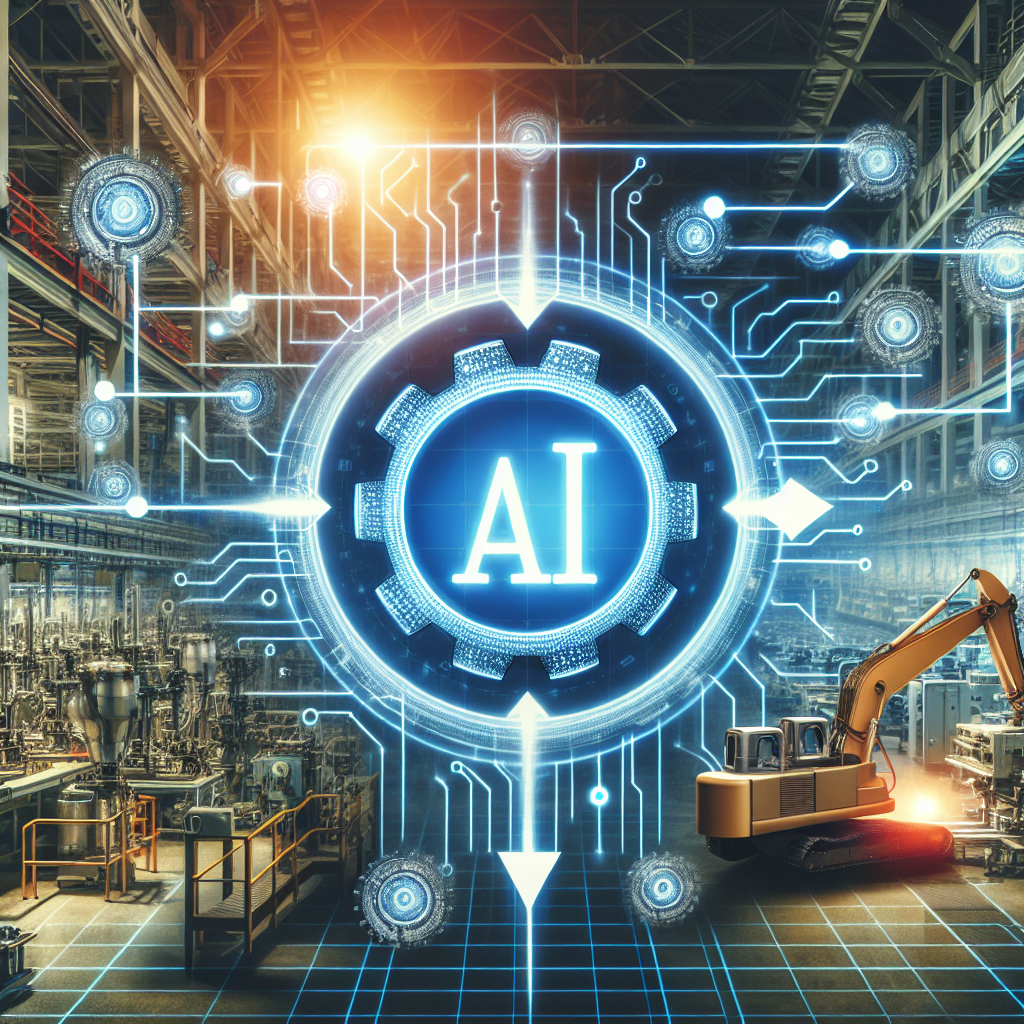Artificial Intelligence (AI) has become a game-changer in the manufacturing industry, revolutionizing the way products are designed, produced, and delivered. From predictive maintenance to quality control, AI is transforming every aspect of the manufacturing process, making it more efficient, cost-effective, and sustainable. In this article, we will explore the ways in which AI is reshaping the manufacturing industry and discuss the benefits and challenges associated with its adoption.
1. Predictive Maintenance
One of the most significant impacts of AI in manufacturing is predictive maintenance. By analyzing real-time data from sensors and machines, AI algorithms can predict when equipment is likely to fail and alert maintenance teams to take proactive action. This not only minimizes downtime but also reduces maintenance costs and extends the lifespan of machinery. Companies like Siemens and General Electric have already implemented AI-powered predictive maintenance systems, resulting in significant improvements in efficiency and productivity.
2. Quality Control
AI is also revolutionizing quality control in manufacturing. Machine learning algorithms can analyze images and data from production lines to detect defects and anomalies in real-time, allowing manufacturers to identify and address quality issues before products are shipped to customers. This not only improves product quality but also reduces waste and rework, leading to cost savings and increased customer satisfaction. Companies like Foxconn and Ford have successfully implemented AI-driven quality control systems, resulting in higher product quality and lower production costs.
3. Supply Chain Management
AI is also transforming supply chain management in manufacturing. By analyzing vast amounts of data from suppliers, logistics providers, and customers, AI algorithms can optimize inventory levels, streamline logistics operations, and improve demand forecasting. This enables manufacturers to reduce lead times, minimize stockouts, and meet customer demands more efficiently. Companies like Amazon and Walmart have leveraged AI to revolutionize their supply chain operations, enabling them to deliver products faster and more cost-effectively.
4. Product Design
AI is also playing a significant role in product design in manufacturing. By analyzing customer preferences, market trends, and performance data, AI algorithms can generate insights that help designers create products that meet consumer demands and expectations. Additionally, AI-powered design tools can automate repetitive tasks, accelerate the design process, and optimize product performance. Companies like Autodesk and Dassault Systèmes have developed AI-driven design platforms that enable manufacturers to innovate faster and stay ahead of the competition.
5. Worker Safety
AI is also being used to enhance worker safety in manufacturing. By analyzing data from sensors and wearables, AI algorithms can identify potential hazards, predict accidents, and alert workers to take preventive measures. This not only improves worker safety but also reduces workplace injuries and liabilities. Companies like Honeywell and IBM have developed AI-powered safety solutions that help manufacturers create safer work environments and comply with regulatory requirements.
Benefits of AI in Manufacturing:
– Increased efficiency and productivity
– Cost savings and waste reduction
– Improved product quality and customer satisfaction
– Enhanced supply chain visibility and optimization
– Accelerated innovation and product development
Challenges of AI in Manufacturing:
– High upfront costs and investment
– Data privacy and security concerns
– Skills gap and workforce retraining
– Regulatory compliance and ethical considerations
– Integration with existing systems and processes
FAQs:
Q: How can manufacturers integrate AI into their existing operations?
A: Manufacturers can start by identifying key areas where AI can have the most significant impact, such as predictive maintenance, quality control, or supply chain management. They can then pilot AI solutions in these areas to demonstrate their value and scalability before scaling up across the organization.
Q: What skills are needed to implement AI in manufacturing?
A: Manufacturers will need to hire or train employees with expertise in data science, machine learning, and AI algorithms to implement and manage AI solutions effectively. They may also need to collaborate with external partners or consultants with experience in AI implementation in manufacturing.
Q: What are some examples of successful AI implementations in manufacturing?
A: Companies like Siemens, Foxconn, and Amazon have successfully implemented AI in various aspects of their manufacturing operations, resulting in improved efficiency, productivity, and cost savings. These companies serve as examples of how AI can transform the manufacturing industry and drive competitive advantage.
Q: How can manufacturers address data privacy and security concerns related to AI?
A: Manufacturers can implement robust data security measures, such as encryption, access controls, and regular audits, to protect sensitive information from unauthorized access or breaches. They can also comply with data privacy regulations, such as GDPR or CCPA, to ensure data protection and privacy rights for customers and employees.
In conclusion, AI is transforming the manufacturing industry in profound ways, enabling companies to achieve unprecedented levels of efficiency, productivity, and innovation. By embracing AI-driven solutions in predictive maintenance, quality control, supply chain management, product design, and worker safety, manufacturers can gain a competitive edge and drive growth in a rapidly evolving market. While there are challenges associated with AI adoption, the benefits far outweigh the risks, making AI an essential tool for the future of manufacturing.

